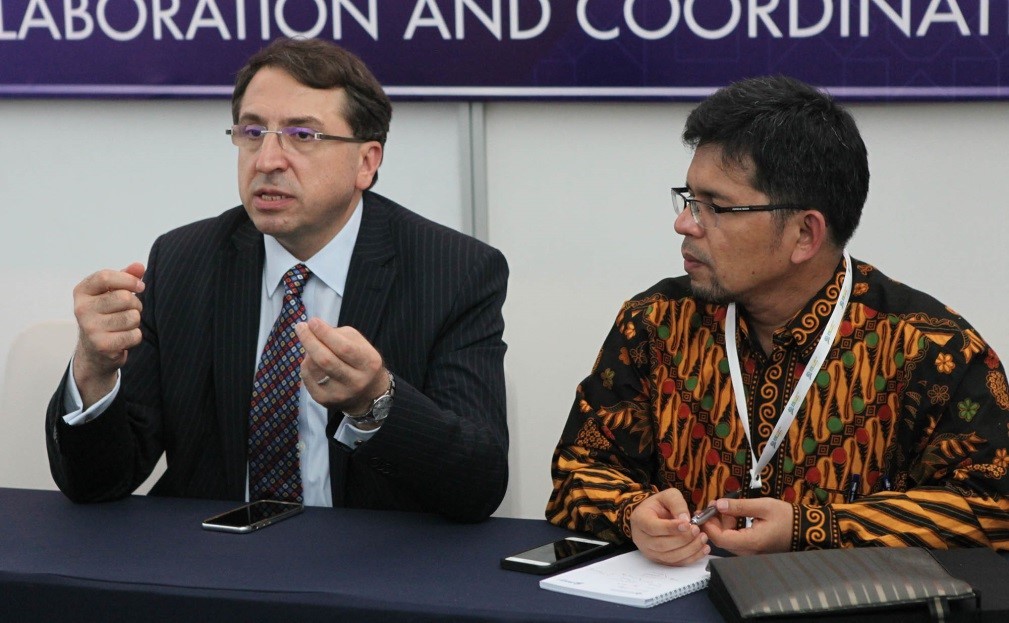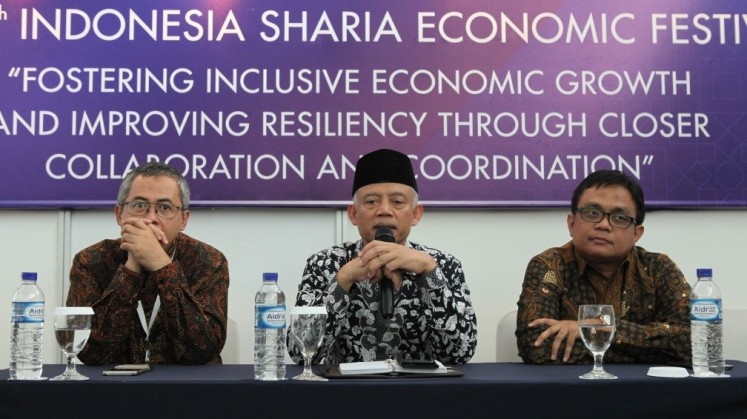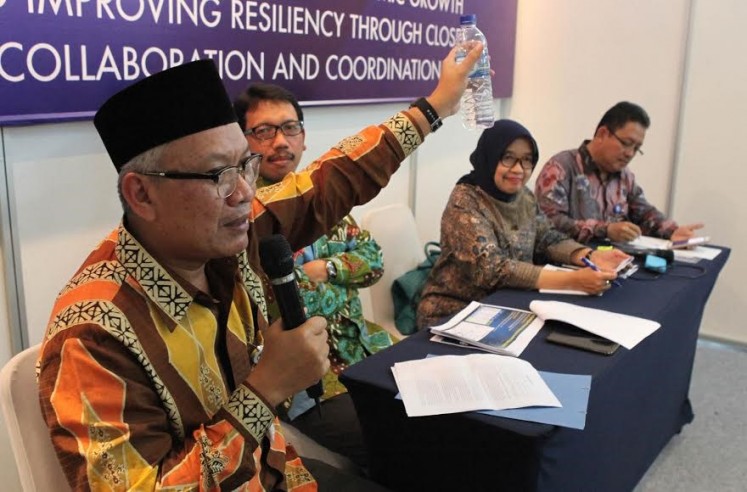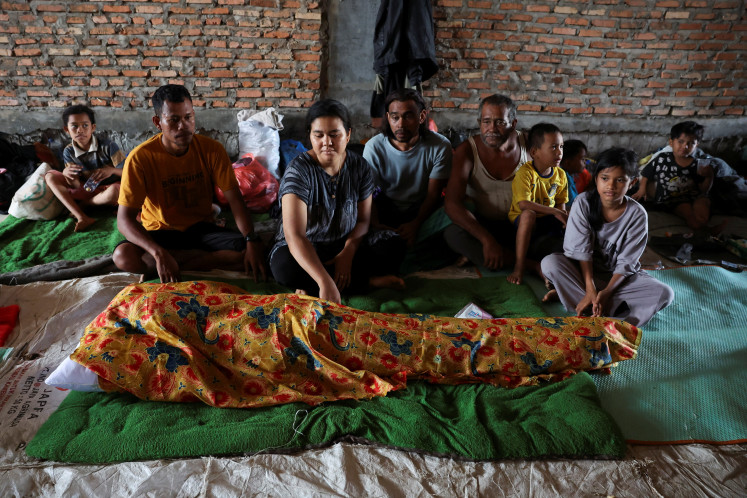Popular Reads
Top Results
Can't find what you're looking for?
View all search resultsPopular Reads
Top Results
Can't find what you're looking for?
View all search resultsBank Indonesia gives stage to halal businesses in Sharia Economic Festival
Change text size
Gift Premium Articles
to Anyone
I
ndonesia needs to put emphasis on the empowerment of its sharia economic players rather than focusing solely on its sharia finance institutions in order to accelerate the development of the country’s sharia economy and finance, Bank Indonesia said.
“We cannot be successful in developing the financial sector such as banks, insurance, and micro finance if we only focus on the financial sector. The economic empowerment must also be pushed,” said Bank Indonesia deputy Perry Warjiyo on Wednesday.
Speaking at a press conference of the 4th Indonesia Sharia Economic Festival (ISEF) held by Bank Indonesia in Surabaya, Perry said that the central bank has come to realize the importance of spurring the country’s sharia economy players and has therefore invited more sharia businesses to this year’s festival.
“It must be done in synergy. That’s why, differently to previous years, the conference is not only focused on the financial sector, but also on empowering the economy through small medium and big businesses. We want to start to identify, develop and showcase these businesses,” he said.
In the event themed “Fostering Inclusive Economic Growth and Improving Resiliency through Closer Collaboration and Coordination”, various businesses, many of which include those run by Islamic boarding schools or pesantren, are given booths to display and promote their products. Moreover, the businesses are given the opportunity to participate in a number of seminars, workshops and meeting to help expand their knowledge and link them with sharia financial institutions.
Indonesia, Perry said, it’s the world’s largest halal market, but, despite its overwhelming potential, is left behind in terms of being producers and players in the halal industry, which covers various sectors including halal food, fashion, tourism, renewable energy and integrated farming.
He added that Indonesia needs to push all of these sectors, but must focus on one of the sectors in particular which has the best chance of rapid growth and competing globally.
“Based on various discussions, the one which we have competitive edge in is halal food. According to estimates from various parties, in 2015 the total (value) of sharia economic and finance activity almost reached Rp 3,000 trillion. Around 70 percent of it is from halal food,” he said.
Head of the Bank Indonesia’s East Java branch Difi Ahmad Johansyah (left) shows mineral water bottle produced by Islamic boarding school (pesantren) during a press conference held in connection with the Sharia Economic Festival 2017 in Surabaya on Tuesday, Nov. 7. He was accompanied by (second left to right) BI’s head of Sharia Finance and Economic department Anwar Bashori, head of the central bank’s development of micro, small and medium enterprises (MMEs) department Yunita Resmi Sari and deputy director of BI’s communications department Dwi Mukti Wibowo. (JP/Arief Suhardiman)According to Bank Indonesia head of Sharia Economy and Finance, Anwar Bashori not all halal industry players in Indonesia are fully aware of ‘thayyib” in conducting their business.
He said that both halal and thayyib are interesting points to talk about.
It is also important to adopt the principle of thayyib which translate to “goodness” in the halal industry in Indonesia so as allow it to grow. Several countries, especially non-Muslim majority countries, have also adopted the thayyib principle in their respective halal industry, which help them to develop.
He said that hotels should not just focus only on unmarried couples who are staying at the hotel, they should focus on the quality of facilities at their places. For examples, hotels must provide clean water, air, cleanliness and safety.
All stakeholders must work together to make halal industry a success in the country.
With the formation of the Sharia Finance National Committee (KNKS) in July this year, Anwar said that Indonesia is making a significant step in the right direction, as the committee, which is led directly by President Joko Widodo, will facilitate better coordination between institutions. In the past, individual efforts used to play a key role in the development of sharia economy. Now it has changed completely.
Commitment from all stakeholders who collaborate together, but there also should be a committee above, which will allow the collaborations to take place. There will be a regulatory meeting, which will give input for the government to make policy.
“With the KNKS, which was established in July 2017, the top down (mechanism) is already there. We need a meeting of regulators so that the ministries can come and formulate a national plan together, because partial programs don’t work,” he said.












